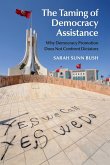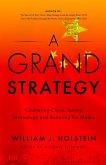Many analysts claim that international politics has recently entered a new era, following the end of the Cold War and then the events of September 11th. In this book, Kalevi Holsti asks what we mean by 'change' in international politics. How do we identify it? How do we distinguish between significant and unimportant changes? Do we really live in a new era or do we see more continuity than transformation in the texture of international politics? Combining theoretical and empirical argument, Holsti investigates eight major international institutions including the state, sovereignty, territoriality, international law, diplomacy, trade and war. Having identified the types of change these institutions have undergone during the last three centuries, Holsti analyses the sources of those changes and speculates on their consequences. This is a major book, likely to have lasting influence in the study of international politics.
Bitte wählen Sie Ihr Anliegen aus.
Rechnungen
Retourenschein anfordern
Bestellstatus
Storno









